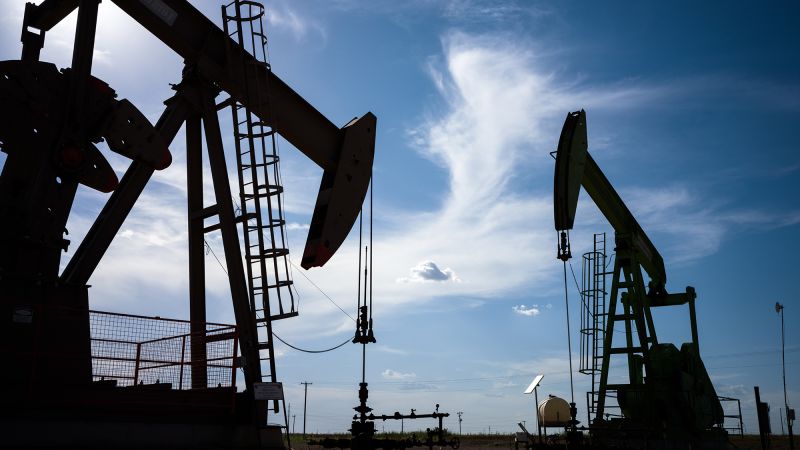Oil prices are currently near three-year lows, with gas prices sinking below $3 in parts of America. Despite this, Vice President Kamala Harris and former President Donald Trump discussed expanding oil production during a recent debate. Harris, who had previously taken a stance against fracking, supported new fracking leases in 2022 as the deciding vote in the Senate. While Harris also promoted clean energy solutions, she highlighted that under the Biden administration, the US has been producing historic levels of oil. On the other hand, Trump advocates for a rapid expansion of oil production and criticized Harris for policies that he believes would harm the fossil fuel industry.
Trump accused Harris of planning to ban fracking in Pennsylvania and elsewhere, which she denied. Industry experts, however, are not concerned about the destruction of the fossil fuel industry, emphasizing the continued reliance on oil for gasoline, diesel, and jet fuel. Ceasing fracking or the entire fossil fuel industry would likely anger voters due to the resulting spike in gasoline prices. Despite the focus on promoting fossil fuel production, it is unclear whether the US requires significantly more oil, a view contrary to what climate scientists recommend.
US crude prices settled below $66 a barrel recently, reaching their lowest level since December 2021 before a slight rebound the following day. Gas prices have also dropped to a six-month low, with concerns over excess supply and weak demand prompting OPEC+ to delay plans to increase production. US oil production has reached a record of 13.4 million barrels per day, with challenges in significantly exceeding 14 million barrels due to limitations in efficient drilling locations.
Both Andy Lipow and Bob McNally express skepticism about a substantial spike in US oil output, highlighting that the president’s ability to quickly ramp up production is limited. While Trump has praised gas prices under his presidency and promised to lower them again if reelected, historical trends demonstrate that extremely low gas prices were due to recessions or economic crises. The oversupply of oil created during previous periods of low gas prices led to bankruptcies in the industry, emphasizing the importance of market demand when considering oil production levels.
In conclusion, the current debate over expanding oil production in the US reflects conflicting perspectives on the necessity and sustainability of increasing fossil fuel output. While politicians advocate for boosting production to benefit consumers through lower gas prices, industry experts caution against overproduction that may lead to financial losses and environmental concerns. The global oil market’s volatility and the need for a balance between energy security and environmental protection underscore the complexities involved in shaping the future of oil production in America. As the US navigates these challenges, finding a middle ground that meets both economic and environmental needs will be crucial in shaping policies and practices in the energy sector.


